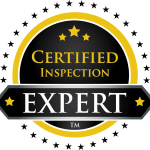Can mold cause health problems?
How do I get rid of mold?
Who should do the cleanup?
However:
If there has been a lot of water damage, and/or mold growth covers more than 10 square feet, consult a mold remediation specialist, or the EPA’s Mold Remediation in Schools and Commercial Buildings. Although focused on schools and commercial buildings, this document is applicable to home and business buildings as well.
If you choose to hire a contractor (or other professional service provider) for mold removal services, make sure the contractor has experience cleaning up mold and the remediation process. Check references and ask the contractor to follow the recommendations in EPA’s Mold Remediation in Schools and Commercial Buildings, or the guidelines of the American Conference of Governmental Industrial Hygienists.
If you suspect that the heating/ventilation/air conditioning (HVAC) system may be contaminated with mold, consult the EPA’s Should You Have the Air Ducts in Your Home Cleaned? before taking further action. Do not run the HVAC system if you know or suspect that it is contaminated with mold—it could spread mold throughout your home.
If the water and/or mold damage was caused by sewage or other contaminated water, then call in a professional who has experience cleaning and fixing buildings damaged by contaminated water.
If you have health concerns, consult a health professional before starting cleanup.
For more information, read the EPA’s A Brief Guide to Mold, Moisture, and Your Home.




Various types of mold are a part of our natural environment. Outside, mold plays a part in nature by breaking down dead organic matter such as fallen leaves and dead trees, but inside, mold growth should be avoided. Mold reproduces by means of tiny spores, which are invisible to the naked eye and float through outdoor and indoor air. These spores may begin growing inside if they land on surfaces that are wet. There are many types of mold, but none of them will grow without water or moisture.
- The key to mold control is moisture control.
- If you have mold issues in your home, you should clean up the mold promptly and fix the water problem.
- Having a professional mold inspection can help in finding, preventing, and treating the issue.
- It is important to dry water-damaged areas and items within 24-48 hours to prevent mold growth.

